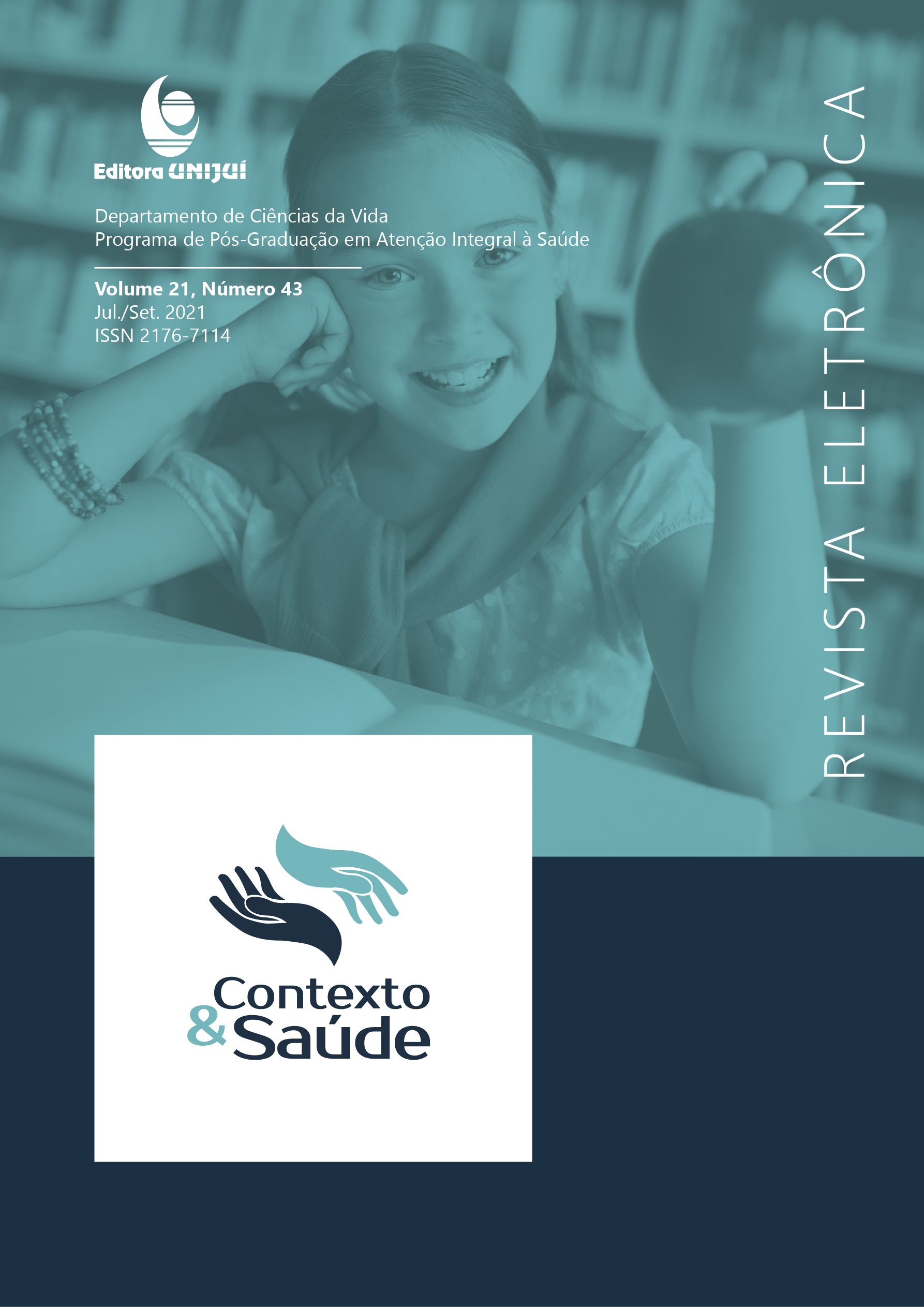SINTOMAS VOCAIS E EFEITOS DA HIDRATAÇÃO APÓS TREINAMENTO ARTÍSTICO EM CENTROS DE TRADIÇÕES GAÚCHAS
VOICE SYMPTOMS AND EFFECTS OF HYDRATION AFTER ARTISTIC TRAINING IN “CENTRO DE TRADIÇÕES GAÚCHAS”
DOI:
https://doi.org/10.21527/2176-7114.2021.43.9702Palavras-chave:
Voz, Canto, Dança, Fonoaudiologia, Saúde, CulturaResumo
Este estudo visou identificar sintomas vocais e analisar os efeitos da hidratação com água na voz de participantes de invernadas artísticas dos Centros de Tradições Gaúchas (CTGs). Trata-se de um ensaio clínico não randomizado, unicego, dois braços de intervenção, realizado com 88 indivíduos participantes de CTGs de Porto Alegre-RS, com idades entre 17 e 48 anos, de ambos os sexos. Quatro CTGs foram selecionados e convidados para a pesquisa, cada um deles sendo randomizado para um grupo de intervenção: Grupo Hidratação (GH) ou Grupo Controle (GC). O GH incluiu 53 indivíduos que receberam orientações sobre saúde vocal e tiveram a oferta monitorada de água durante o período de ensaio da invernada. O GC contou com 35 indivíduos que seguiram com a rotina normal de ensaio, recebendo apenas orientações sobre saúde em geral (não relacionadas à voz). As avaliações foram feitas nos períodos pré e pós-ensaio imediatos, por meio da Escala de Sintomas Vocais e do Questionário de Sinais e Sintomas Vocais. Observou-se que 42 indivíduos (47,7% da amostra) apresentaram elevado número de sintomas vocais, indicando possível risco para distúrbio vocal. As mulheres apresentaram maiores escores, e os sujeitos que participavam da invernada há mais tempo relataram menos sintomas. Não houve diferença significativa entre os grupos, exceto para a variável idade (p=0,005). Após o ensaio, observou-se diminuição do sintoma “dificuldade para cantar ou falar baixo” no GH e aumento deste no GC (p=0,005). Os dados indicam que a amostra estudada pode estar em riscos para distúrbios vocais e a hidratação mostrou efeitos benéficos nestes indivíduos.
Downloads
Publicado
Como Citar
Edição
Seção
Licença

Este trabalho está licenciado sob uma licença Creative Commons Attribution 4.0 International License.
Ao publicar na Revista Contexto & Saúde, os autores concordam com os seguintes termos:
Os trabalhos seguem a licença Creative Commons Atribuição 4.0 Internacional (CC BY 4.0), que permite:
Compartilhar — copiar e redistribuir o material em qualquer meio ou formato;
Adaptar — remixar, transformar e criar a partir do material para qualquer fim, inclusive comercial.
Essas permissões são irrevogáveis, desde que respeitados os seguintes termos:
Atribuição — os autores devem ser devidamente creditados, com link para a licença e indicação de eventuais alterações realizadas.
Sem restrições adicionais — não podem ser aplicadas condições legais ou tecnológicas que restrinjam o uso permitido pela licença.
Avisos:
A licença não se aplica a elementos em domínio público ou cobertos por exceções legais.
A licença não garante todos os direitos necessários para usos específicos (ex.: direitos de imagem, privacidade ou morais).
A revista não se responsabiliza pelas opiniões expressas nos artigos, que são de exclusiva responsabilidade dos autores. O Editor, com o apoio do Comitê Editorial, reserva-se o direito de sugerir ou solicitar modificações quando necessário.
Somente serão aceitos artigos científicos originais, com resultados de pesquisas de interesse que não tenham sido publicados nem submetidos simultaneamente a outro periódico com o mesmo objetivo.
A menção a marcas comerciais ou produtos específicos destina-se apenas à identificação, sem qualquer vínculo promocional por parte dos autores ou da revista.
Contrato de Licença (para artigos publicados a partir de setembro/2025): Os autores mantém os direitos autorais sobre seu artigo, e concedem à Revista Contexto & Saúde o direito de primeira publicação.

